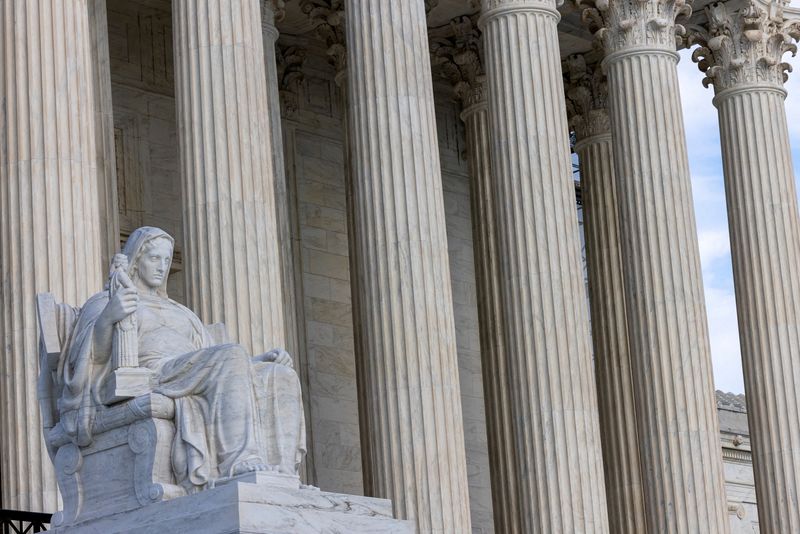Texas death row inmate’s DNA testing case goes to US Supreme Court
2024.10.04 15:23
By Brendan Pierson
(Reuters) -The U.S. Supreme Court agreed on Friday to hear an appeal by a Texas man who faces the death penalty for his role in the 1998 murder of an elderly mobile home park owner and is seeking DNA testing of evidence from the crime scene.
The death row inmate, Ruben Gutierrez, appealed a lower court’s ruling against his challenge to a Texas law limiting the use of DNA testing after a person has been convicted of a crime. The Supreme Court is due to hear the case during its new nine-month term that begins on Monday.
Gutierrez was scheduled to be executed in 2020, but won a stay from the Supreme Court after challenging the state’s refusal to allow a priest to be present.
He was convicted of taking part in a robbery with two accomplices that ended with the 85-year-old victim, Escolastica Harrison, being stabbed to death with a screwdriver. Gutierrez has maintained that he should not face the death penalty because he did not stab Harrison or anticipate that she would be killed in the robbery, and has argued that DNA evidence would help show that he did not enter her home.
Texas prosecutors have declined to do DNA testing because they said that Texas law allows post-conviction DNA testing only in order to show innocence of a crime, not to challenge a death sentence. And they have said that, even if the DNA testing did support Gutierrez claims, he would still be eligible for the death penalty.
Gutierrez has mounted several challenges to his sentence. In the current case, he has argued that the Texas law limiting DNA testing violated his constitutional right to due process – the requirement that governments must follow certain procedures before taking away a person’s life, liberty or property.
Shawn Nolan, a lawyer for Gutierrez, said the decision by the Supreme Court to hear the case “brings us one step closer to finally doing the DNA testing that will overturn Ruben’s wrongful conviction and death sentence.” The office of Texas Attorney General Ken Paxton did not immediately respond to a request for comment.

The New Orleans-based 5th U.S. Circuit Court of Appeals ruled that Gutierrez did not have standing to bring the case because state prosecutors have said he would be eligible for the death penalty no matter what, meaning they would likely not allow DNA testing even if Gutierrez won the lawsuit.
Gutierrez has argued that the 5th Circuit’s decision conflicted with Supreme Court precedent and rulings by other federal courts.








